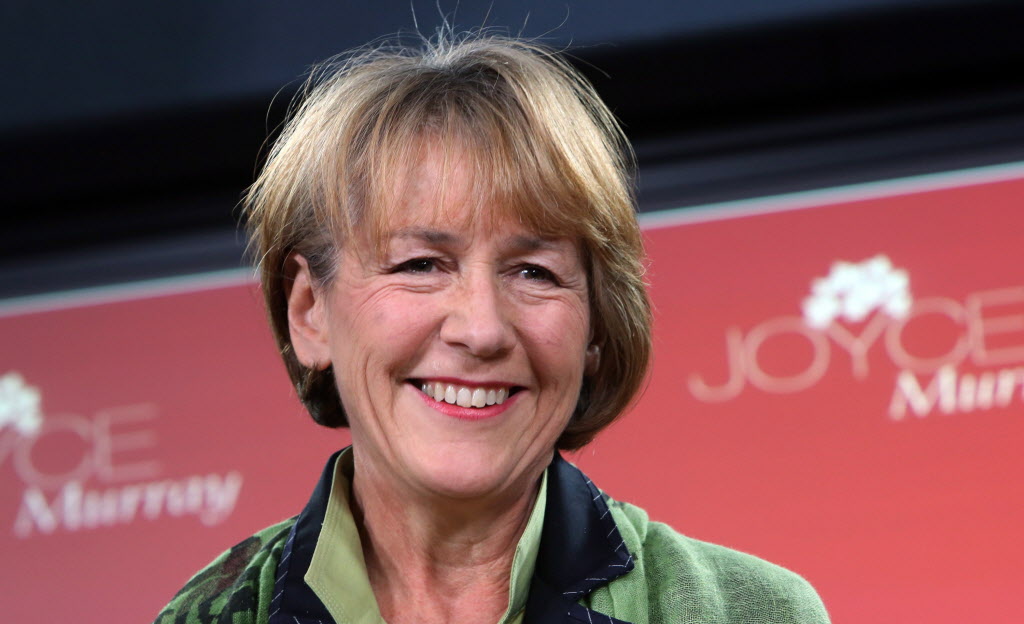OTTAWA – The latest fundraising numbers for federal Liberal leadership contenders suggest Joyce Murray has emerged as the primary challenger to front-runner Justin Trudeau.

The second of four weekly financial reports filed with Elections Canada show Trudeau raised another $35,000 over the past week, on top of the $1 million reported previously.
But Vancouver MP Murray continued to show momentum, pulling in $29,000, for a total of $198,000 over the entire campaign.
That moves her ahead of former Toronto MP Martha Hall Findlay, who has raised a total of $186,500.
Hall Findlay started out strongly, raising $115,000 by the end of last year.
But her fundraising effort seems to have stalled as the race heads down the home stretch; she raised just $7,500 over the past week.
Murray’s campaign has been given a big boost from grassroots and online advocacy groups who’ve endorsed her strong environmental platform and her plan for one-time electoral co-operation among progressive parties aimed at ensuring defeat of Stephen Harper’s Conservatives in 2015.
She’s also received high-profile endorsements from the likes of environmental activist David Suzuki, former House of Commons Speaker Peter Milliken and constitutional expert Peter Russell.
Among the other contenders, former cabinet minister Martin Cauchon raised $21,000 this week, for a total of $124,000.
Retired military officer Karen McCrimmon raised $6,000, for a total of $32,000.
And Toronto constitutional lawyer Deborah Coyne raised $2,000, for a total of $29,000.
In last year’s NDP leadership race, the fundraising prowess of each of the contenders turned out to be a good indicator of the order in which they crossed the finish line.
The co-relation may not be quite as pronounced in the Liberal contest, the results of which are to be announced on April 14.
Unlike the NDP, which used a true one-member-one-vote system to elect Tom Mulcair, the Liberals intend to weight their votes to give each riding equal clout. Hence, the geographic distribution of each candidate’s support could skew the outcome.
Party president Mike Crawley announced Thursday that 130,774 supporters and members have registered to vote — less than half the 294,000 who initially signed up to take part in the leadership contest.
Three quarters of those registered voters — some 98,250 — are supporters, according to Crawley. Just 32,750 are actual card-carrying, dues-paying members of the party.
The third-place Liberals created the new supporter class in a bid to open up the leadership process and engage more Canadians in the effort to rebuild the once-mighty party.
Depending on how many registered voters actually cast ballots, Crawley said the contest could be “the biggest, most open federal political party leadership vote in Canadian history.”

Comments